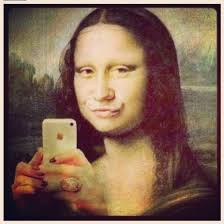With online filter tools improving all the time, what we share is carefully aggregated and regurgitated to paint a picture that defines our online identity. But, what exactly motivates us when sharing personal information about ourselves on social networking sites like Facebook, Instagram etc.? Deeply rooted in the human condition is our need to socialise. What one shares online may be to showcase their skills, to generate business, to gain employment or perhaps to market themselves or their product.
On a personal level, it is interesting to pay attention to what others are posting online and more importantly why?
Is the compulsion to provide a running commentary on every aspect of your life along with the obligatory video and photo borne out of a need to feed the ego? This interferes with being present, being still and being real. Do you ever feel like saying to someone “Stop…you are missing it” and by “it”, I mean life.
Do you have a “friend” on your social networking site who seems to have it all? The close knit group of gal pals that work hard and play hard always seem to be heading off on girlie weekends or spa and shopping breaks. In their selfies, they look like they have just stepped out of the salon. How much time do you spend envying their seemingly perfect hair, body, friends and relationships and lives?
There are two sides of the argument. Some might say that the voyeuristic nature of viewing peoples’ impeccable lives can lead to a feeling of deep seated social isolation and maybe even exclusion.
On the other hand, virtual communities with shared interests have brought together those who lack confidence or are socially awkward in a non threatening way.
Game therapy is for some the new play therapy. Dr. Aleks Krotroski interviewed a number of gaming experts on her Guardian Tech Weekly show where they discussed online gaming as therapy.
One panelist who had been through a tough time describes her first encounter with games such as “Flower” and “Journey” and how she felt deeply affected in a positive way.
Another guest described his problems in relating to his girlfriend. His therapist contended that the gaming environment was good for him and his girlfriend noted that his interactions with her improved over time.
In her article “Identity in a virual world” Michelle Jana Chan says according to Nick Yee (Stanford University), who has done studies of online communities found that;
If we look at innovators such as Aaron Schwartz, The Internet’s own Boy and Mark Zuckerberg, they share many of the same personality traits. Both are highly intelligent and creative but have had difficulties socially making connections with others in friendships and relationships.
It is certainly no accident that Zuckerberg founded Facebook. I wonder on a subconscious level, if he was trying to carve out for himself an online platform where he could establish and maintain friendships. Maybe for Schwartz, Zuckerberg and many more technological innovators the online world is less scary than the real world.

